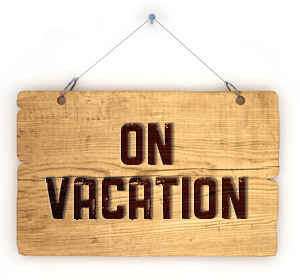Have you ever wondered whether to say “on vacation” or “in vacation”? Both phrases are common, but one is more correct.
Understanding the difference can help you sound more fluent in English. In this blog post, we will explore the usage of “on vacation” and “in vacation. ” You’ll learn which one to use and when. This small change can make a big impact on your communication skills.
So, let’s dive in and clear up this common confusion.

Common Vacation Phrases
Traveling often leads to confusion about common phrases. One of the most debated is whether to say “on vacation” or “in vacation”. Let’s dive into some frequent mistakes and regional variations.
Frequent Mistakes
Many people mix up “on vacation” and “in vacation”. The phrase “on vacation” is correct in English. Saying “in vacation” is a common mistake. This error often occurs among non-native speakers. Here are some examples:
- Correct: I am on vacation next week.
- Incorrect: I am in vacation next week.
Using “in vacation” can confuse listeners. To sound more natural, always use “on vacation”. Practice helps in avoiding these mistakes.
Regional Variations
Different regions use various phrases for vacations. In the United States, people say “on vacation”. In British English, “holiday” is more common. Here is a quick comparison:
| Region | Common Phrase |
|---|---|
| United States | On vacation |
| United Kingdom | On holiday |
Understanding regional variations helps in effective communication. When traveling, adapt to the local phrases. This makes interactions smoother and more pleasant.
Origins Of ‘on Vacation’
The phrase ‘on vacation’ is commonly used in the United States. It means someone is taking a break from work or daily routines. But where did this phrase come from? Let’s explore the origins of ‘on vacation’.
Historical Context
The term ‘vacation’ has roots in Latin. It comes from the word ‘vacare’, meaning to be free or empty. In the past, ‘vacation’ referred to a break from regular activities. In the 19th century, people started using ‘on vacation’ to describe their time off. This was especially true among the wealthy who could afford travel.
Cultural Influences
American culture has shaped the use of ‘on vacation’. The rise of leisure travel in the 20th century made vacations more common. People began to associate vacations with relaxation and fun. Media and advertising promoted the idea of being ‘on vacation’ as a desirable state. As a result, the phrase became widely accepted and used.
Origins Of ‘in Vacation’
The phrase “in vacation” has a historical and cultural background. This section explores the origins of this term. Understanding its roots can help clarify its usage and significance.
Historical Context
The term “in vacation” dates back to earlier centuries. People used it to describe a period of rest or break. It was common in legal and academic contexts. During these breaks, courts and schools were not in session. This usage signified a time when regular activities paused.
Cultural Influences
Different cultures have influenced the phrase “in vacation.” In some regions, this term became part of everyday language. It reflected local customs and traditions. The way people viewed rest periods shaped this terminology. Cultural practices often dictated how vacations were spent. These influences enriched the meaning of “in vacation.”
American English Usage
The use of “on vacation” or “in vacation” can be confusing. American English has specific rules and preferences. Understanding these differences helps in clear communication. It’s important to use the right phrases in the right contexts. This section will break down the preferred phrases and common contexts. This will help you use them correctly.
Preferred Phrases
In American English, people usually say “on vacation.” This phrase is more common and widely accepted. Saying “in vacation” sounds strange to native speakers. “On vacation” implies that someone is taking a break. They are away from work or school. This phrase fits well in most situations.
For example, you might say, “I am on vacation next week.” This clearly communicates that you will be away. It feels natural and easy to understand. Always choose “on vacation” for better clarity.
Common Contexts
There are many contexts where “on vacation” is used. One common context is travel. When you visit a new place, you say, “I am on vacation in Paris.” It indicates you are there for leisure. Another context is taking a break from work. You might say, “She is on vacation from her job.” This means she is taking time off.
Holidays are another context. You might hear, “We are on vacation for the holidays.” This suggests a break during festive times. In all these contexts, “on vacation” is the preferred phrase. It keeps your language clear and correct.
British English Usage
Understanding the differences in English usage is vital for effective communication. British English has unique phrases and contexts. These can differ significantly from other forms of English. Let’s explore the preferred phrases and common contexts for the expression “On Vacation” or “In Vacation” in British English.
Preferred Phrases
In British English, the term “on holiday” is commonly used. People rarely say “on vacation”. The phrase “in vacation” is almost never used. Here is a quick comparison:
| American English | British English |
|---|---|
| On Vacation | On Holiday |
| In Vacation | In Holiday |
Common Contexts
British people frequently use “on holiday” in various contexts. Here are some common examples:
- Travel Plans: “We are going on holiday to Spain.”
- Work Leave: “She is on holiday this week.”
- School Breaks: “The children are on holiday for summer.”
In British English, the use of “holiday” is versatile. It can refer to both short breaks and extended trips. This is different from American English, which uses “vacation” for longer trips.

Other English-speaking Regions
English is a global language, spoken in various regions around the world. Each region has its own unique way of using certain phrases. This can include how people describe their time off. Understanding these differences is important for clear communication.
Australian English
In Australia, people commonly use the phrase “on holiday”. They rarely say “on vacation”. Australians might say, “I’m going on holiday next week”. The term “holiday” is used whether they are traveling abroad or staying local. Australians also use “holiday” to describe public holidays, such as Christmas or Easter.
Canadian English
In Canada, people often use the terms “on vacation” and “on holiday” interchangeably. Canadians might say, “I’m on vacation” or “I’m on holiday”. Both are acceptable and understood. However, “vacation” is more commonly used, especially in everyday conversations. For example, “We are going on vacation to the mountains”. Canadians also use “holiday” to refer to public holidays like Thanksgiving and New Year’s Day.
Here is a comparison of phrases used in different English-speaking regions:
| Region | Common Phrase |
|---|---|
| Australia | On Holiday |
| Canada | On Vacation, On Holiday |
Grammar Rules
Understanding the correct use of prepositions can be challenging. One common confusion arises with the phrases “on vacation” and “in vacation”. These small words make a big difference. Let’s dive into the grammar rules to clarify this.
Prepositions In English
Prepositions are small but mighty words. They show relationships between other words in a sentence. In English, common prepositions include “in”, “on”, “at”, “by”, and “for”. Choosing the right preposition is crucial. It ensures your sentence makes sense.
For example, “in the house” indicates being inside the house. “On the table” means something is resting atop the table. These subtle differences matter. They affect the meaning of your sentence.
Applying The Rules
So, how do we apply these rules to “on vacation” and “in vacation”? The phrase “on vacation” is correct in American English. It means someone is taking a break from work or school. They are enjoying their free time.
For instance, “She is on vacation in Hawaii.” This sentence tells us she is currently enjoying her time off in Hawaii. On the other hand, “in vacation” is not commonly used. Native speakers might find it awkward or incorrect.
Remember, these rules are not universal. Other English-speaking regions might use different prepositions. Always consider the context and region. This ensures your English sounds natural and correct.
Practical Tips
Planning a vacation can be exciting, but language barriers can cause confusion. This blog section provides practical tips to help you navigate common English phrases. Learn how to use “on vacation” and “in vacation” correctly. These tips will improve your fluency and avoid misunderstandings.
Avoiding Confusion
Many people struggle with the phrases “on vacation” and “in vacation.” The correct phrase is “on vacation.” Native speakers use “on vacation” to indicate someone is taking a break. For example, “She is on vacation in Hawaii.” Never say “in vacation” because it is incorrect.
Always remember this rule. It will help you avoid confusion in conversations. Writing “on vacation” correctly in emails and messages also shows your language skills.
Improving Fluency
Practice using “on vacation” in sentences. For instance, “I will be on vacation next week.” Repeating this will make it easier to remember. Additionally, listening to native speakers helps you learn the correct usage.
Watching movies or shows in English can also be beneficial. Pay attention to characters mentioning their vacations. Mimicking these sentences improves your fluency. Over time, you will use “on vacation” naturally.
Another tip is to write short stories about your vacations. This practice reinforces the correct phrase. Share your stories with friends or language partners to get feedback.

Frequently Asked Questions
Is It Going On A Vacation Or For A Vacation?
It is “going on a vacation. ” This phrase is more commonly used and understood.
What Is The Meaning Of On Vacation?
Being “on vacation” means taking a break from work or daily routines to relax and enjoy leisure time.
How Do I Say I’ll Be On Vacation?
Say, “I’ll be on vacation. ” You can also use, “I’m going on vacation” or “I will be away on vacation. “
How Do I Write “i Am On Vacation”?
To write “I am on vacation,” simply use the phrase as it is. It clearly communicates that you are away.
Conclusion
Choosing the right preposition can seem tricky. Remember, “on vacation” is common in American English. “In vacation” is rarely used and sounds odd. Use “on vacation” to describe time away. This simple tip helps you sound natural. Enjoy your travels and speak confidently.
Safe travels!



